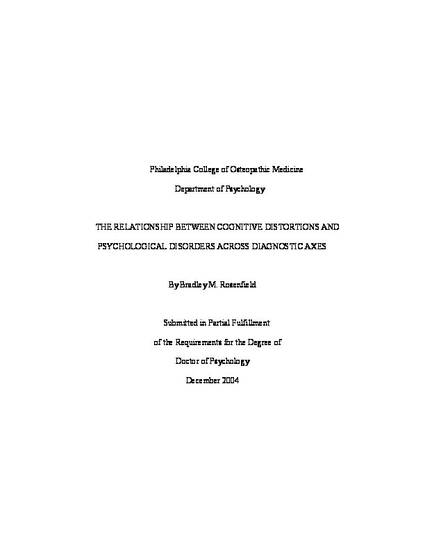
The purpose of this study was twofold: First, the study sought to determine whether or not cognitive distortions correlated with the number and severity of psychological disorders across diagnostic axes. Second, the study endeavored to assess further the validity and reliability of a promising new self-report measure, The Inventory of Cognitive Distortions (ICD), by correlating this instrument with clinical diagnoses as determined by the Millon Clinical Multiaxial Inventory-III. The sample was selected from a heterogeneous adult outpatient population. Participants meeting inclusion criteria presented for psychological treatment or assessment. Excluded were participants who had less than an eighth grade education, or who met diagnostic criteria for a number of neurological disorders. The study was correlational in design. Results supported the reliability and validity of the ICD as an assessment instrument measuring cognitive distortions, because the ICD determined that approximately half of the variance in both the number and severity of psychological dysfunction, on both Axis I and Axis II, was accounted for by the frequency of cognitive distortions.
Available at: http://works.bepress.com/bradley_rosenfield/1/
